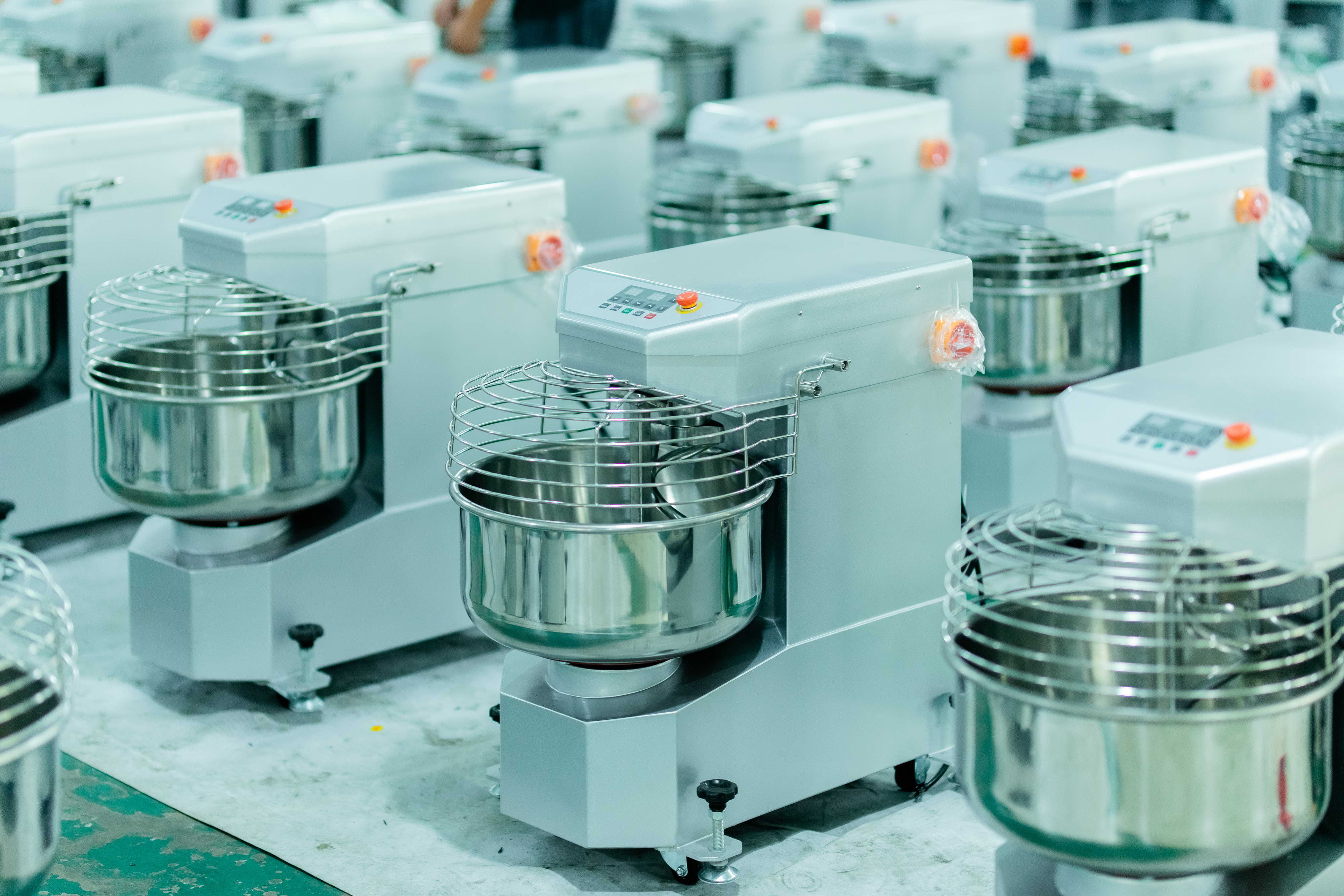
Advantages of Using Spiral Mixers in Commercial Baking
Spiral mixers offer several advantages when it comes to commercial baking.Firstly, they provide versatility in handling different types of dough, particularly artisan breads, bagels, and pizza dough. The rotation of the bowl in both directions, along with the spiral-shaped agitator, ensures proper dough consistency and well-blended ingredients. This results in a more uniform texture and structure in the final baked goods.
Another advantage of spiral mixers is their quieter operation compared to planetary mixers. This can be beneficial in a busy commercial kitchen where noise levels need to be kept to a minimum. Additionally, spiral mixers are designed with ease of cleaning in mind. Their compact design and fewer parts make them faster and easier to clean, saving valuable time in a busy bakery.
To illustrate, imagine a bakery that specializes in artisan bread. The bakery uses a spiral mixer to mix the dough for their famous sourdough loaves. The spiral mixer ensures that the dough is properly mixed, resulting in a consistent texture and structure in the baked bread. The mixer operates quietly, allowing the bakers to work in a peaceful environment. After the mixing process, the spiral mixer is easily cleaned, ready for the next batch of dough.
Best Practices for Using Spiral Mixers
When using spiral mixers in commercial baking, it is important to follow best practices to ensure optimal results. Different types of dough require specific mixing techniques to achieve the desired texture and structure. It is crucial to understand the characteristics of each dough and adjust the mixing time and speed accordingly.
Additionally, considering the dough capacity and production volume is essential for efficient batch sizes. Evaluating the kitchen space and mixing needs is also important when selecting a spiral mixer for seamless integration into the bakery workflow. By carefully assessing these factors, bakers can choose a spiral mixer that meets their specific requirements and ensures consistent and efficient production.
For example, a bakery that specializes in bagels needs to follow specific mixing techniques for bagel dough. They use a spiral mixer with the appropriate capacity to handle the volume of dough needed for their daily production. The bakery takes into account the available space in their kitchen and selects a spiral mixer that fits perfectly into their workflow.
Maintenance Tips for Spiral Mixers
Proper maintenance is crucial for optimal performance and longevity of spiral mixers. Regular cleaning and sanitation procedures should be followed to maintain hygiene and prevent contamination. It is important to clean all components of the mixer thoroughly, including the bowl, agitator, and other attachments.
In addition to cleaning, regular inspection of components and lubrication of moving parts is necessary to ensure smooth operation. This helps to prevent any potential issues and extends the lifespan of the mixer.
To illustrate, let's consider a bakery that uses a spiral mixer for their daily bread production. The bakery follows a strict cleaning schedule, ensuring that the mixer is thoroughly cleaned after each use. They also inspect the mixer regularly, checking for any signs of wear and tear and lubricating the necessary parts to maintain smooth operation.
Spiral Mixers vs. Planetary Mixers
Spiral mixers and planetary mixers are two common types of mixers used in commercial baking. While both have their advantages, they differ in terms of their suitability for different applications.
Spiral mixers are best suited for artisan breads, bagels, and pizza dough. They rotate the bowl and have a compact design with a spiral-shaped agitator that revolves around the bowl. This design allows for efficient mixing of large dough capacities. Spiral mixers are known for their energy efficiency, ease of cleaning, and their ability to handle dough with a high water absorption ratio.
On the other hand, planetary mixers offer more versatility for various mixtures. They have a stationary bowl and a tilting head design, allowing for the attachment of different mixing tools. Planetary mixers are suitable for smaller batches and can be used for blending, kneading, slicing, chopping, grating, and whipping.
To provide an example, imagine a bakery that produces a wide range of baked goods, including cakes, cookies, and bread. They have both a spiral mixer and a planetary mixer in their kitchen. The spiral mixer is used for mixing large batches of dough for their artisan bread and pizza, while the planetary mixer is used for whipping cream, creaming butter and sugar for cakes, and making cookie dough.
Selecting the Right Spiral Mixer for Commercial Use
When selecting a spiral mixer for commercial use, several factors should be considered.Firstly, the dough capacity and mixing action are important considerations. Different spiral mixers offer varying capacities, and it is essential to choose one that can handle the volume of dough needed for production.
Another factor to consider is the gluten development requirements for the specific types of dough being prepared. Some doughs require more intense mixing to develop the gluten structure properly. It is necessary to select a spiral mixer that can provide the necessary mixing action for optimal results.
Kitchen space availability and production volume are also key factors to keep in mind when choosing a spiral mixer. It is important to select a mixer that fits comfortably in the available space and can handle the expected production volume.
Additionally, it is recommended to look for reputable brands that offer safety features and essential accessories. Brands like Vollrath are known for their quality and reliability in the commercial baking industry.
For example, a bakery that specializes in artisan bread and has a high production volume would need a spiral mixer with a large dough capacity. They carefully assess their kitchen space and select a reputable brand that offers the necessary safety features and accessories for efficient and safe operation.
Conclusion
Spiral mixers offer numerous advantages for commercial baking, including versatility, proper dough consistency, and ease of cleaning. By following best practices and proper maintenance, bakers can ensure optimal performance and longevity of spiral mixers. When selecting a spiral mixer for commercial use, it is important to consider specific baking needs, production requirements, and available space. By making informed decisions, bakers can choose the right spiral mixer that meets their unique requirements and enhances their baking operations.


Comments